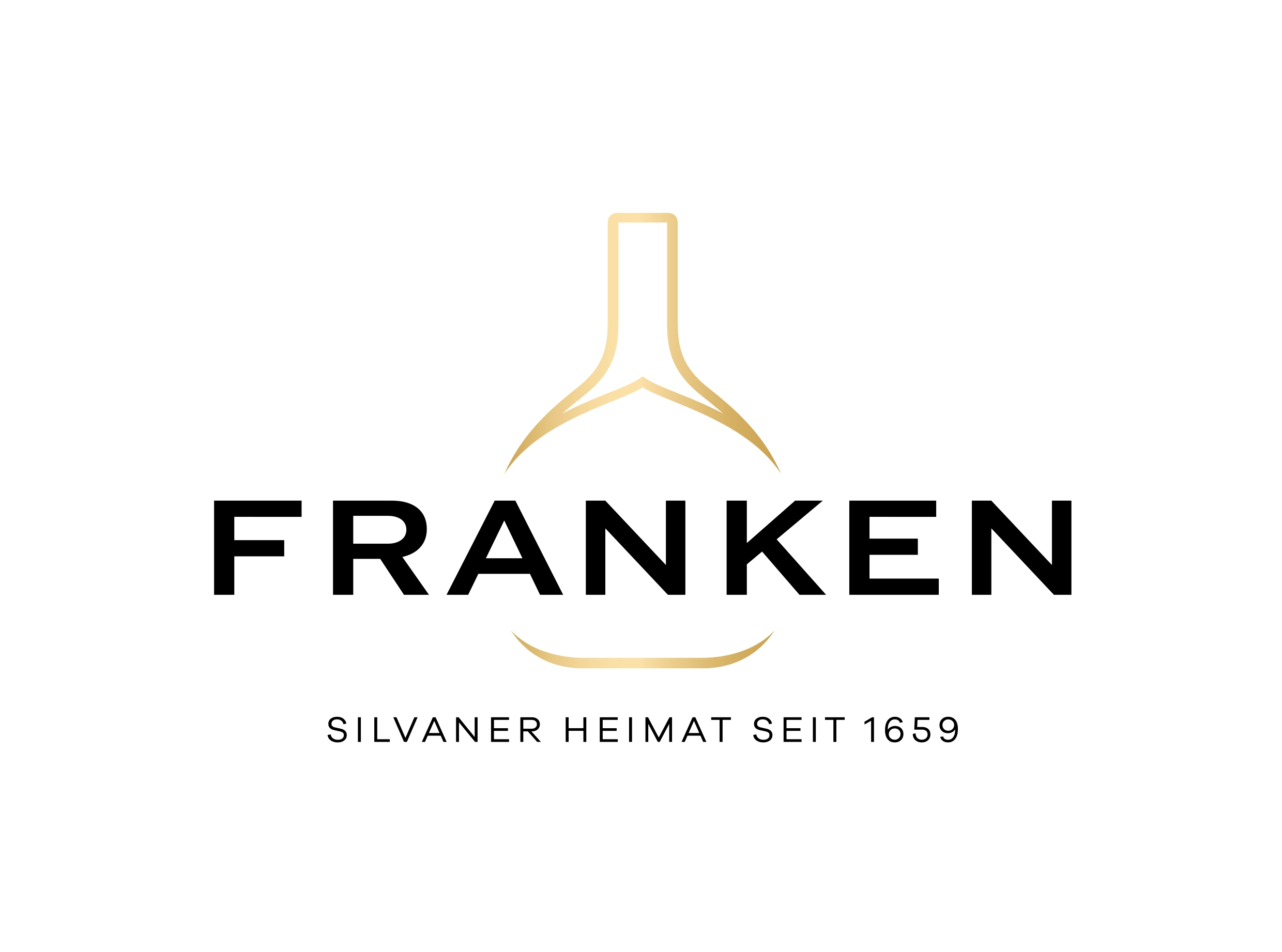History & Stories
Guided tours and walks to the sights of Würzburg
and through the Franconian Wine region
Years as guide
Thematic areas
Groups guided
People guided
Guided tours, walks & wine tours
Würzburg Residence I Marienberg Fortress I Würzburg Old Town I Gardens & Parks I Wine Tours I Wine hiking tours I Wine tastings
COVID-19 protection
- Maximum 15 persons plus guide.
- Keep the distance (at least 1.5 m to persons not belonging to the own household).
- The 2G plus rule applies (vaccinated or recovered plus negative test, max. 24 hours old).
- Only outdoor tours possible (no indoor tours currently offered).
- The participation of guided tours must be documented according to the requirements (ans DSGVO conform).
- Regulations at www.wuerzburg.de/coronainfo
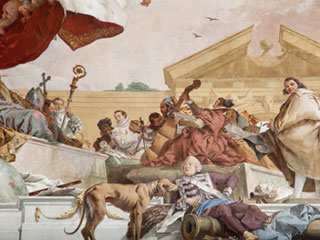
Built by the prince-bishops in Würzburg from 1720 onwards, the Würzburg Residence belongs to the most beautiful buildings from the Baroque period and has also been a UNESCO World Heritage Site since 1981. You can book a walk through the baroque palace, either on its own or in combination with the Hofgarten. It is also possible to combine this with other guided tours.
(Duration: 1,5h)
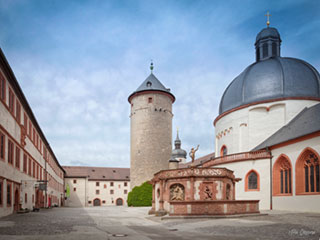
Visible from afar, this is the landmark of the city of Würzburg. Beginning in the middle of the 13th century, it remained the seat of the prince-bishops of Würzburg for over 500 years. Once built as a Celtic castle, the fortress is a historical site dating up to the 20th century. You can book a tour of Marienburg Fortress, either on its own or in combination with other guided tours.
(Duration: 1,5h)
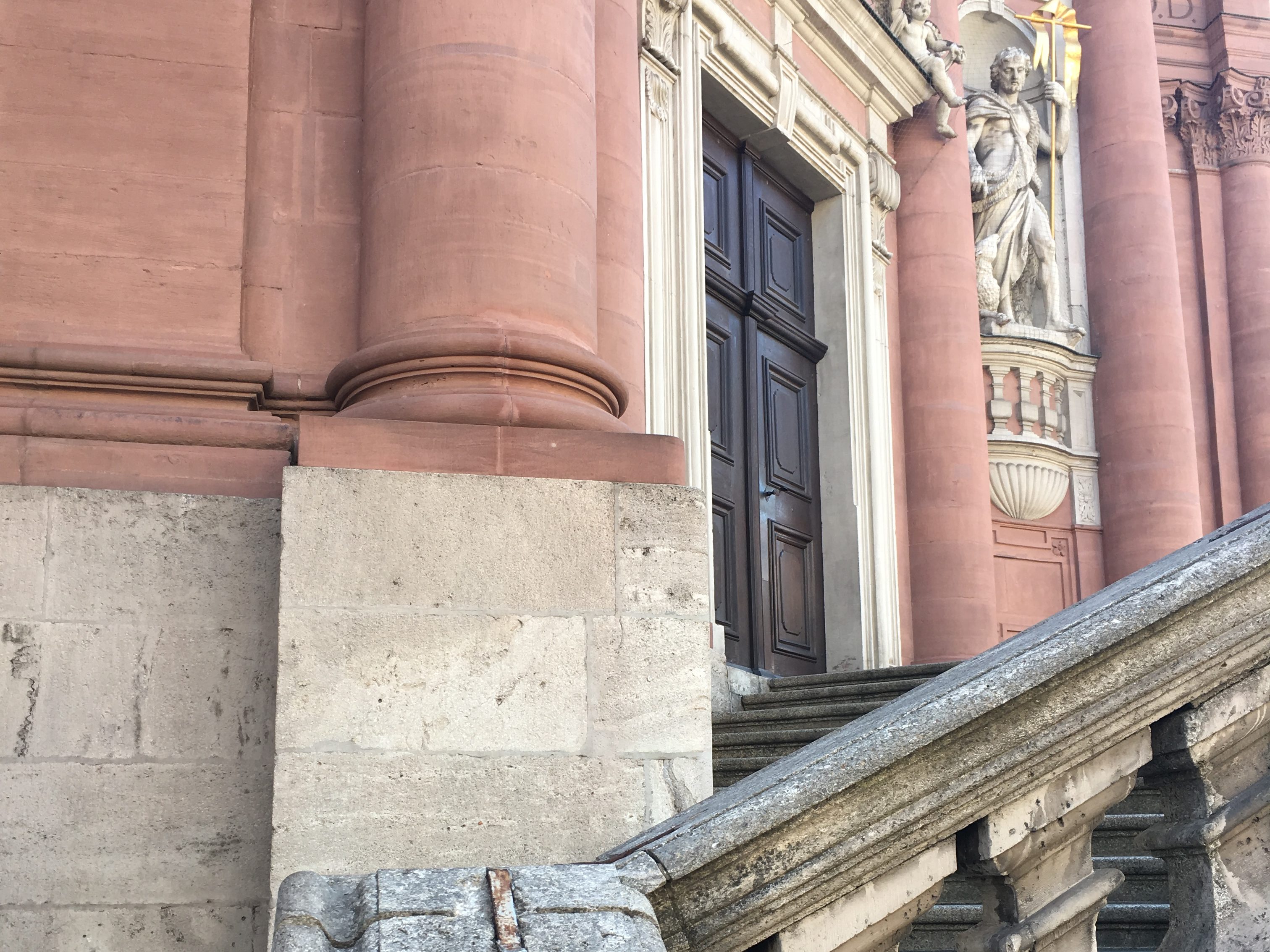
Falkenhaus, Neumünster, Würzburg Cathedral and the town hall – these are just a few of the highlights when touring the Franconian city which was which first mentioned in 704 as “Castellum Virteburch”. A tour through the old town of Würzburg is a foray through 1,300 years of history. The walk can be booked on its own or in combination with other offers.
(Duration: 2h)
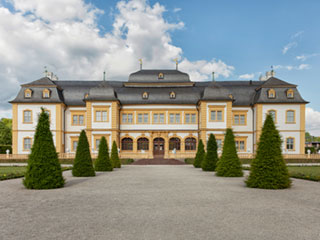
In the middle of the 18th century, the Würzburg prince-bishop Adam Friedrich von Seinsheim commissioned the Bohemian-born garden artist Johann Prokop Mayer for the design of the Würzburg Court Garden. At the same time, he commissioned Ferdinand Tietz to further develop the Rococo Garden in Veitshöchheim. Both tours can only be booked individually.
(Duration: 1.5h)
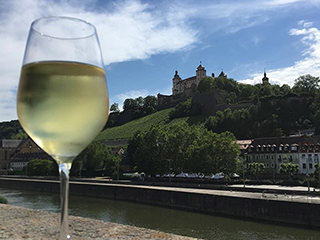
Wine Tours
Franconia has been the home of the Silvaner vine since 1659. The wine region stretches from Spessart to Steigerwald and with more than 6000 hectares, Franconia is one of the medium-sized wine areas in Germany. Wine walks followed by a visit to a winegrower (guided tour through the winery, the wine cellar and small wine tastings upon request).
(Duration: Half-day program)
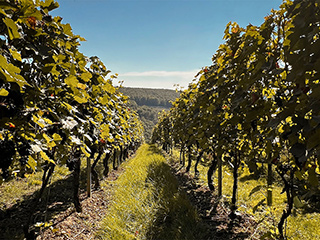
Wine hiking tours can be taken along the Würzburger Stein (Stein-Wein-Pfad, 4 km round trail), in Veitshöchheim (Sonnenschein, 2 km round trail), Thüngersheim (Höhfeldplatte, 4.3 km round trail), and Güntersleben (Sonnenstuhl, 3 km round trail). The circular paths are easily accessible and can be booked with or without wine tasting in the vineyard.
(Duration: 2-3 h)
Individual wine tours & tastings
Wine tasting
Franconian wine tasting with a detailled wine explanation of the different wines, optionally with bread or snack. Only possible for groups of up to 6 people. Details on request.
(approx. 2 hours)
Ecology in viticulture
Visit to an organic winegrower in the region with guided tour of vineyards and winery, wine tasting can also be organised on request. Only possible for groups of up to 6 people.
(Duration: Half-day program)
Excursion to the “terroir f points”
terroir f Würzburg (wine & literature), terroir f Thüngersheim (wine & mythology), terroir f Rimpar (wine and ecology). Wine tasting on request, possible for up to 6 people.
(Duration: Half-day program)
Guided tours & walks
up to 2 hours: 128 €
up to 3 hours: 163 €
up to 5 hours: 205 €
up to 8 hours: 305 €
Every new hour started: 35 €
Group size up to max. 15 persons. Entrance fees are not included.
Wine hiking tours
Tasting of up the 3 wines: 14 € per person
Tasting of up to 4 wines: 17 € per person
Tasting of up to 6 wines: 23 € per person
plus costs of the guided tour
Guide fees, see guided tours
Group size up to max. 15 persons. Entrance fees are not included.
Individual tours
Up to 5 hours: 205 €
maximum 6 persons
plus wine tasting costs
transfer on request
Fees for wine tastings, see wine tours
Group size up to 6 persons only. Transfer not included.
Welcome to Ann LouisⓇ

Ann LouisⓇ. Two names of the 20th century, 400 years of (family) history. Preserving the past. Living the present. Shaping the future. The roots of the family are cross-border, widely ramified and reach back to 1604.
Louis(e) was born in 1908 († 1989) and grew up in a large, colourful family. In the Saarland on the border to France, the family profited from mining and agriculture, the women worked as seamstresses. The outbreak of the First World War forced the family, like many other people, to break off kinship relations with their French neighbours. At first, intercultural identity was a thing of the past. Six years before the outbreak of the Second World War, in 1933, Louise married.
Ann(eliese) was born in the summer of 1943 († 2009) as Louise’s second child, also in Saarland – in the middle of the chaos of war. The father fought for the Deutsche Reich. After the Second World War, the French military government gave the area its own administration and connected it to France through a customs and currency union. The family lived under the French flag until 1957, when Saarland was returned to Germany after a referendum. During this time, many women wanted to participate in society in a different way, wanted to live self-determined lives and pursue a profession. Anneliese trained as a chiropodist and continued to practise her profession after her marriage and the birth of two children.
In 1970 I was born, the first child of Anneliese and the family moved to Bavaria a few years later. Thus Franconia has become the adopted country for me and my family. The name Ann LouisⓇ is dedicated to my mother and my grandmother, who look back on a similarly chequered history in their lives as their home in Saarland. In this way regions and their history connect people and cultures. For many years I have been guiding visitors to Würzburg through “my city” as a tour guide and wandering through the vineyards of the Franconian wine country, wine cellars and moderating wine tastings as a wine experience guide.
“Learn to let go, that is the key to happiness.”
Buddha
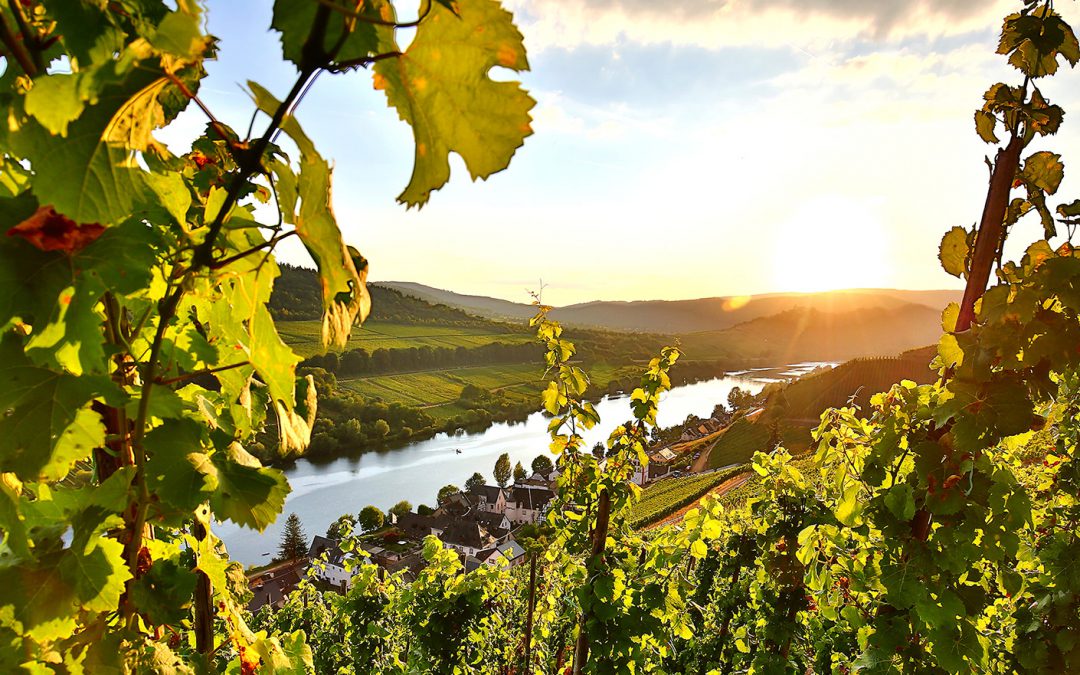
What exactly is biodiversity?
Guest article by Dr Beate Wende, Wild Habitat Advisory Service Viticulture, Bavarian State Institute for Viticulture and Horticulture Biodiversity is a word, that is very ofter used at the moment. To protect biodiversity is a discussion that is becoming louder. The...
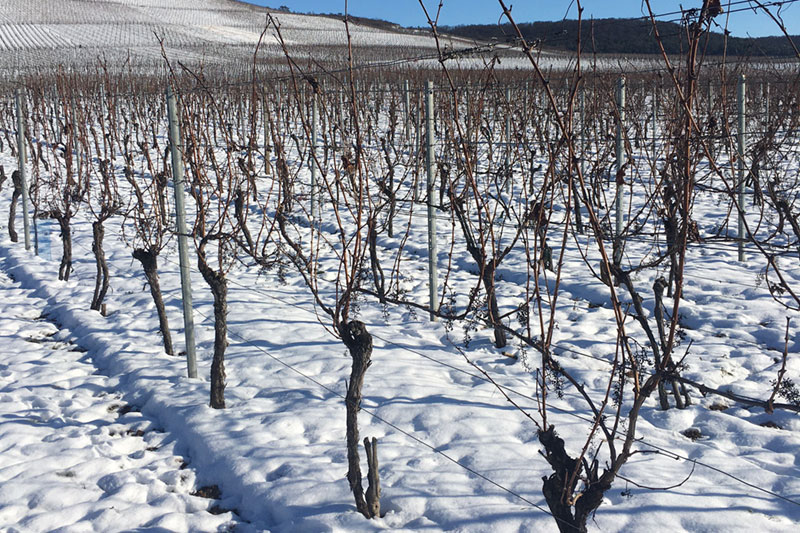
Winter in the Vineyard
In the winter, the vineyard rests. The vines enjoy this ‘downtime’ as the previous year’s vintage matures patiently in the barrels. Most of the work takes place in the cellar. But for the majority of winegrowers, it all starts again in January or February. The next...
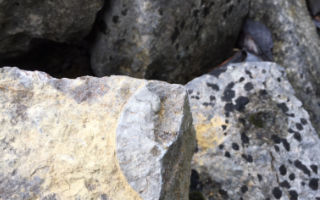
The Franconian Trias: variety of soils for very special wines
Everyone's talking about terroir, we're talking about Trias. The Lower Franconian wines do not only grow on one kind of soil. We have three very different types of soil within our region: Buntsandstein, Muschelkalk and Keuper. Together they are called the “Franconian...
Chez Ann LouisⓇ
Currently, the apartment is rented permanently.
Anns vines
A new mosaic stone was added to the tourist-gastronomic heart project some time ago – better said: some small vineyards.
Thüngersheimer Scharlachberg – Gewürztraminer
Vines as far as the eye can see: In the Main Triangle between Veitshöchheim and Thüngersheim you will find the Thüngersheim Scharlachberg. Vineyards with a wonderful view over the Main. Here in the Scharlachberg lies one of the vineyards – in the best neighbourhood with some of the region’s renowned wineries.
A geological peculiarity of this terroir is the “Thüngersheimer Sattel”: Due to earth faults, the red sandstone here has broken through the layer of lower shell limestone. Thus, two of the three geological rock types of the “Franconian Triassic” can be found here in this very small area. This is also where one of Ann LouisⓇ vineyards Is located on which Gewürztraminer has been growing for 20 years now – also called Red Traminer or Yellow Traminer because of its reddish-yellow grapes. This sub-variety of the Traminer native to Central Europe is characterised by small to medium-sized, oval grapes with thick skin.
As the name suggests, Gewürztraminer produces very aromatic wines with a distinct rose scent. Other typical aromas and flavours are lychee, bitter orange, honey and marzipan. The first wine by Ann LouisⓇ shows the year 2020 on its label.
Thüngersheimer Johannisberg – Rivaner & Bacchus
The vineyard Thüngersheimer Johannisberg follows the Thüngersheimer Scharlachberg and consists of several small side valleys bordering on a forest belt. The terroir is also characterised by the Thüngersheimer Sattel.
Two small vineyards are located here: Rivaner (Riesling & Madeleine Royal) and Bacchus (Silvaner x Riesling and Müller-Thurgau). Both belong to the so-called Bouquet varieties. Rivaner is considered as mild, not very acidic, easy to drink with a slightly musky aroma and taste. The Bacchus, also called early Scheurebe, impresses with its aroma and fruit with low acidity.
By the way, a four-kilometre long wine trail leads through the Thüngersheimer Vineyards. It presents the grape varieties cultivated here on 16 panels.
Güntersleben Sommerstuhl – Dornfelder
A suitable spot was also found for the first own red wine: in the Güntersleben Sommerstuhl. The sun-drenched site is located in a very natural landscape to the west of Güntersleben and is part of the large Thüngersheimer Ravensburg site.
The special thing about the Sommerstuhl is that the vineyard area, which is quite manageable with around 17 hectares, is managed by dozens of different wine growers. Almost 20 of the part-time winegrower’s market their Güntersleben Sommerstuhl themselves. During the annual vineyard walks, the respective Güntersleben wine princess guides visitors through the Sommerstuhl – right into the heart of the region’s fascinating world of wine.
Most of the Sommerstuhl is planted with white varieties such as Müller-Thurgau, Silvaner, Bacchus and Kerner. Among the reds, in addition to Dornfelder, there are also Spätburgunder and Domina, which also thrive well on the shell limestone soil and produce high yields. The Dornfelder has a deep red, almost black-red colour as well as a strong and at the same time fruity and harmonious aroma with moderate acidity. Therefore, the variety is also suited for ageing in oak barrels.
Louis wine-bar
Comming soon!
For those who don’t know what „Hecke“ means: „Hecke“ or „Häckerwirtschaft“ stands for the time, when winegrowers open their own doors to serve their wines. But we are not there yet.
Nevertheless, there will be an opportunity to get to know the wines in 2022:
22 May 2022: Young wine tasting from 14:00 to 18:00, Schömigshof.
19 June 2022: Vineyard walk from 10:00, Stand 1
